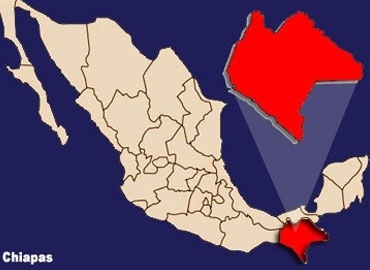Recently the case of the French national, Florence Cassez, imprisoned in Mexico on the charge of being an accomplice to a gang of kidnappers, has been in the headlines. A few weeks ago, Mexico’s Supreme Court ordered Cassez’s release after considering evidence which showed that the police had not followed proper procedure when arresting her. Sadly, there are a hundred stories like that of Cassez’s in Mexico. It is well known that the police rarely follow legal procedure when making arrests and that the courts convict defendants in the full-knowledge of the fact that the evidence they are presented with has been obtained illegally. Cassez’s release was mainly due to the diplomatic pressure the French government applied in Mexico. Ordinary Mexicans have no such extra legal recourse, and, as a result, their cases rarely make the Supreme Court.
The story of Rosa López is particularly horrifying. Her misfortunes began in 2005 when her husband left her to emigrate illegally to the United States with his lover. Rosa, an indigeneous Tsotsil women from the town of San Cristóbal de la Casas in Chiapas, Mexico, had five children to support, so she set about selling small goods on a street corner. A year later, she started a new relationship with a fellow market-seller, Alfredo. This did not please her husband’s family, who reproached her constantly, calling her a prostitute and insisting she ought to wait faithfully for her husband to return.
In May 2007, while Rosa was pregnant with her sixth child, she was unexpectedly arrested by the local police, accused along with Alfredo of kidnapping a girl called Claudia Estefanía, the daughter of her husband’s uncle. During Rosa’s detention, police officers tortured her in an effort to make her confess to being involved in the kidnapping. She was blindfolded and tied up, threatened with rape, asphyxiated with a plastic bag and beaten repeatedly in her stomach until she agreed to make a statement incriminating herself in the kidnapping of Claudia.
In the trial that followed, Rosa, who did not speak Spanish, was not given the services of a translator who could explain the process in her native language. She also could not afford the services of a competent lawyer. As a result, her confession meant she was found guilty and sentenced to 27 years, 6 months and 17 days in prison.
A few months later, her sixth child was born. The baby had various health problems, including cerebral palsy and a broken spinal column, probably as a result of the violence Rosa suffered during her arrest. As Rosa was still in prison, she gave her son, Nataneal, to her mother to care for along with her five other children. Sadly, he died in 2011.
Rosa is still in prison. Due to the numerous irregularities presented in her arrest and the flagrant violation of her human rights during her trial, activists in Chiapas and Spain have organised a campaign to call for her release. Journalist and human-rights campaigner, Patricia Chandomí, has published an open letter to Manuel Velasco Coello, State Governor of Chiapas, on her blog Mujeres en Chiapas (Women in Chiapas). The letter calls the governor’s attention to the fact that the police who captured Rosa did not have an arrest warrant and highlights the violence to which she was subjected at hands of the authorities. It also points out that in the case of grave human rights violations during a criminal process, Chiapas’s Criminal Code allows for the governor to order the immediate release (on a suspended sentence) of any convicted prisoner.
You can add your name (and location) to this letter in the comments section. I have already done so. I urge you to do the same.
Update 19:48 : You can also sign the petition at Avaaz.org
Filed under: Human Rights in Mexico, Violence Against Women, Chiapas, human rights violations, Rosa López, violence against women
